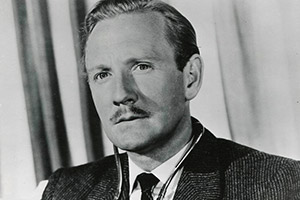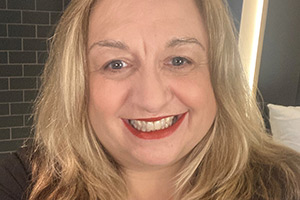Ding dong!: Leslie Phillips at 100
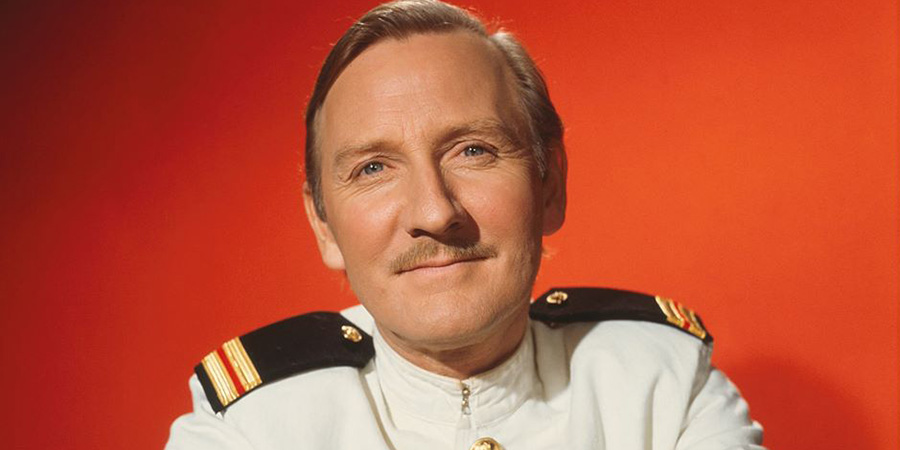
'Ding dong!'
It's a simple yet effective expression, but in the hands of actor Leslie Phillips it became iconic, sexy and embodied a certain style, in an era when chaps drove open-top sports cars and admired pretty girls in short skirts and low-cut blouses.
But Leslie Phillips was much more than his screen image. He was a household name thanks to the Carry On and Doctor films, but also a producer, director and in later years a fine character actor doing some very heavy-weight and interesting work.
Marking 100 years since his birth, we look back at some of his life and career highlights.
Born in Tottenham, North London, on 20th April 1924, he remained a lifelong Spurs fan and always said that, although not technically born within the sound of Bow Bells, he considered that he was 'within the general footprint of Cockneydom'. The youngest child of three, his father Fredrick sadly died in 1935, aged just 44, from a weak heart brought on by the unpleasant conditions of the cooker factory in which he worked. His mother Cecelia, now a widow, wanted a better life for the charming and good-looking Leslie and sent him to the Italia Conti School of Theatre Arts. The local newspaper had mentioned Leslie in a review of a school play and printed his picture: this was all the encouragement his mother needed to decide that a life on stage was where he belonged. Unable to pay the fees, they struck a deal whereby as soon as the school could secure work for him they acted as his agent and took a percentage of his wages, with the rest going to the cash-strapped Phillips family.
Leslie attended three nights a week after normal school hours, learning drama, dance, and receiving elocution lessons to iron out the London twang of his voice. No actor back then could survive the business with any kind of regional accent and RP - received pronunciation - was the only way forward. These early elocution lessons gave Leslie the distinctive upper-class voice he became famous for.
Work came along reasonably quickly and he made his stage debut in 1937, playing a wolf in Peter Pan at the London Palladium alongside Anna Neagle. In 1938 he was cast in his first film, a small uncredited role in Lassie From Lancashire. As time went on his everyday school friends - and even some family members, such as his brother Fred - found it difficult to relate to the new theatrical life Leslie was leading and drifted away from him, but with a busy West End scene and a still thriving British film industry, work was plentiful and Leslie was on his way.
More small parts in film and theatre continued with Leslie working at Pinewood Studios, and what became a long association with Binkie Beaumont and H. M. Tennent's production company in the theatre, both in the West End and on tour, working with theatrical and Hollywood legends including Vivien Leigh.
In 1939 war with Germany was declared, but the Government decreed that the theatres stay open for morale. As well as working as an ASM (assistant stage manager) and playing some parts in the theatre during this time, Leslie was a fire watcher until, in 1942, aged 18, he was called up for service.
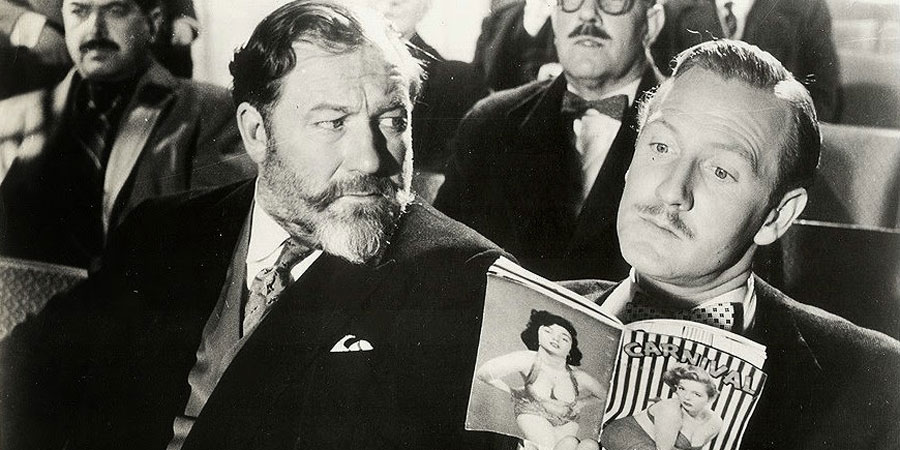
Initially, he rose to the rank of Lance Bombardier in the Royal Artillery, but once again that cut-glass accent propelled Phillips to higher things and he was singled out for Officer training. Staying with the Royal Artillery, he was sent to Catterick and became a Second Lieutenant, before being transferred to command a unit with the Durham Light Infantry. Leslie enjoyed life as an officer and took well to the role, believing this would be his path in life beyond the war. This was not to be. Just before D-Day Leslie was declared unfit for service due to a neurological condition that caused partial paralysis and he was demobbed at Christmas 1944. He always felt terrible guilt that his unit fought in the battle but he didn't, and he stayed in touch with the regiment.
Coming back to London with a demob suit and an army pension, Leslie hadn't considered returning to the stage a career option, believing it was mere childish fun and a means to an income before his life in the forces. However, a chance encounter on Shaftesbury Avenue with Elsie Beyer, general manager for H. M. Tennent, who Leslie had worked for before the war, put him back on the path of showbusiness. She offered him the rather demeaning job of third box office assistant at the Lyric Theatre in the West End, and without any other prospects on the horizon, Leslie accepted. Although he hated it, it got him back into theatrical circles.
Small parts and ASM roles kept the wolf from the door for a while, but as the war ended Leslie took an enormous leap of faith and left London to learn his trade at York rep, starting with small 'cough and spit' parts. After a few of these, fate took a hand when, with 3 days until the opening night of the comedy play Army Of Preoccupation, the actor playing one of the lead roles, Captain Percy, broke his leg. The director reluctantly promoted him from a two-line part and when the audience responded with huge laughs, Phillips realised that he had a flair for comedy acting.
Leslie then spent a very happy 18 months at the Theatre Royal in York, becoming a leading light in the company and a firm favourite with the audience, but, when he returned to London he realised that provincial stardom meant nothing and he was starting from the bottom rung of the ladder again. But Leslie was an actor who was never out of work: although the parts were small he continued to make headway in the business both in theatre and films.
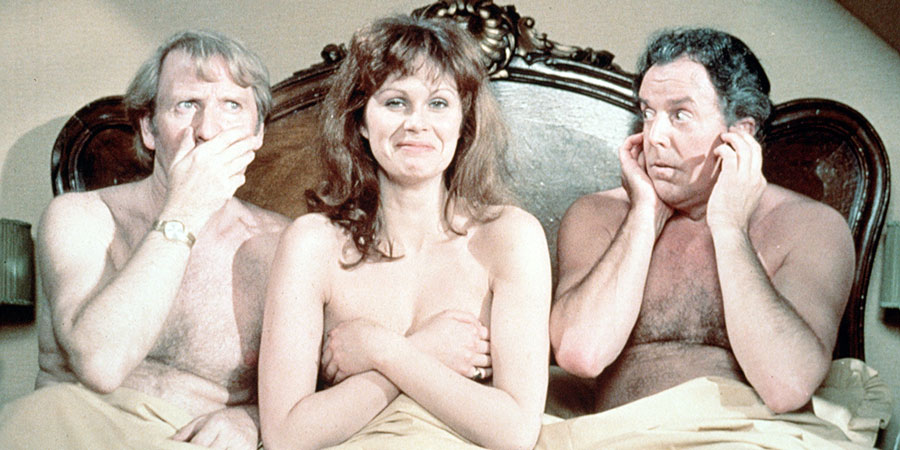
It was the late 1950s when Leslie Phillips made the transition from successful jobbing actor to household name. When his agent, John Redway, called him with the news that MGM wanted him to play a major role in the 1957 film Les Girls, with Gene Kelly and Kay Kendall, Leslie was flabbergasted and flew out to LA (his first time in an aeroplane) to make the movie. It was a great success. There was a certain lure to Hollywood and he met some huge stars of the day. However, although he'd partied with Paul Newman, played tennis with James Mason and flirted with Ginger Rogers, Leslie's heart lay in dear old Blighty. He was also a married man with children by this time, which added to the pull back home and while he enjoyed his time in America he considered himself primarily a theatre actor. In an interview with The Guardian in 2004 he explained: "I didn't want to become a poor man's David Niven, and besides, I was a theatre actor and I didn't necessarily think of America as a theatre place."
Back home it was film and radio rather than theatre that gave Leslie the roles that would cement him in the minds of the British public. 1959 saw him join the Carry On team at Pinewood for the second film in the series, Carry On Nurse. It was not a financially lucrative role, paying only £100 a week for 5 weeks of work, compared to £500 per day for expenses alone with Les Girls, but he was more at ease. Cast as the character Jack Bell, this would be the first time he uttered those immortal words: 'ding dong' - a catchphrase that would follow him throughout his career.
Two more Carry Ons followed: Carry On Teacher (1959), his favourite of these first three Carry Ons he made (and where Leslie fell foul of the censors with his stresses on Joan Sims's character's surname, Allcock); and Carry On, Constable (1960), where we got a flash of the Phillips posterior in a scene that was daring for the time.
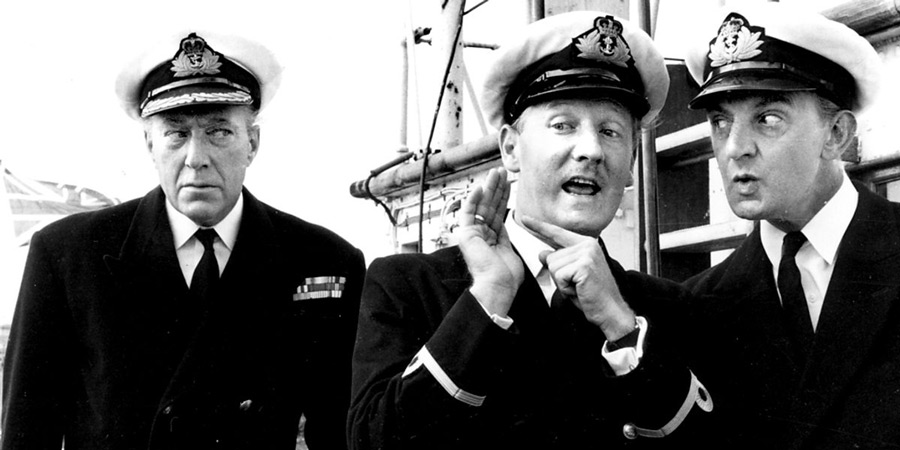
1959 was also the year Leslie embarked, quite literally, on HMS Troutbridge as Sub Lieutenant Phillips, the inept navigator, in BBC Radio's The Navy Lark, a series that would last until 1977, with Leslie going out of his way to never miss a single episode. He adored both the show and the rest of the cast, considering it a job 'where money was irrelevant' because he loved it so much.
With the success of the Carry On films and The Navy Lark on the radio, Leslie was now a familiar face and voice to the British public. However, after Carry On, Constable he decided he didn't want to do any more, fearing the risk of being typecast and locked into a long-running series. Producer Peter Rogers on the other hand had Leslie in mind for more in the franchise, like Regardless and Cruising, and had hinted at a 'deal' for prominent team members, which we now know never materialised. While all this was going on Leslie was being lured away by Betty E. Box, not only the wife of Rogers but a renowned film producer in her own right. She had established her own very successful series with the Doctor films, but her stars, Dirk Bogarde and Kenneth Moore, were leaving. Betty wanted Leslie as Dr Tony Burke in Doctor In Love (1960). The money was much better and Leslie went on to make two further instalments: Doctor In Clover (1966) and Doctor In Trouble (1970), becoming synonymous with this series even more so than he was with the Carry Ons.
On stage in the '60s and '70s, Leslie made the play The Man Most Likely To his own. Initially written by Joyce Rayburn, Phillips re-wrote much of the script and tried it out in Brighton and Newcastle before mounting it at London's Vaudeville Theatre in 1968, moving to the Duke Of York's in 1971. The play ran for over 1,000 performances in the capital with Leslie as star, producer and director. He would take the play all over the world, clocking up tours of South Africa, Australia and the Far East. Whilst away others tried to take on the titular role, but the public never warmed to anyone but Leslie as the lead, a smooth-talking charmer battling with the permissive society and lusting after his son's girlfriend.
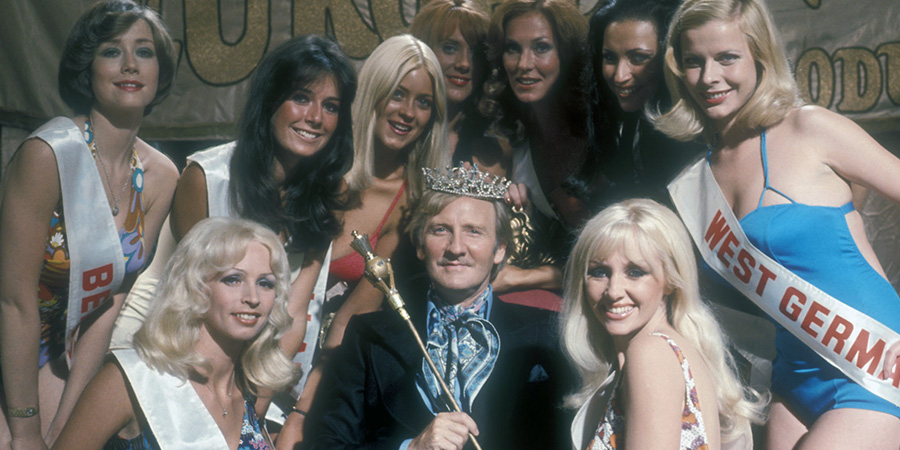
On television, the acclaimed writers Galton & Simpson gave Leslie a hit show with Casanova '73, which they wrote especially for him. The critics hated it but the public loved the exploits of Henry Newhouse, who leads a double life as a womaniser whilst seemingly happily married to wife Carol. Clean-up TV campaigner Mary Whitehouse was appalled at the over-sexed antics and complaints forced the show to be moved from its initial Monday 8pm slot to Thursdays at 9:25pm.
Outwardly, Leslie always played up to his popular louche, lothario image, and he was married 3 times; but in reality, he was very much a family man. With his first wife, Penny Bartley, he had 4 children: Claudia, Caroline, Andrew and Roger; and many grandchildren and great-grandchildren came from this brood. The marriage ended in divorce when his extramarital affair with actress Caroline Mortimer became public. The pair enjoyed a long-standing relationship but never married.
Leslie also had a three-year relationship with Australian actress Vicki Luke, who acted opposite him in a tour of The Man Most Likely To. She was considerably younger than he and took well to the bohemian lifestyle at his Spanish finca in Ibiza. Leslie was first introduced to the island by his The Navy Lark cast mate Jon Pertwee and kept a house there for the rest of his life, becoming friends with both the wider ex-pat community and many other creative people who had houses there, striking up a particularly close friendship with fellow actor Denham Elliot.
By 1977 Phillips was living with actress Angela Scoular, whom he had first met on Doctor In Trouble seven years earlier, and brought up her son Daniel as his own. Following the death of ex-wife Penny - after multiple health problems, including a stroke - Leslie and Angela married in 1982.
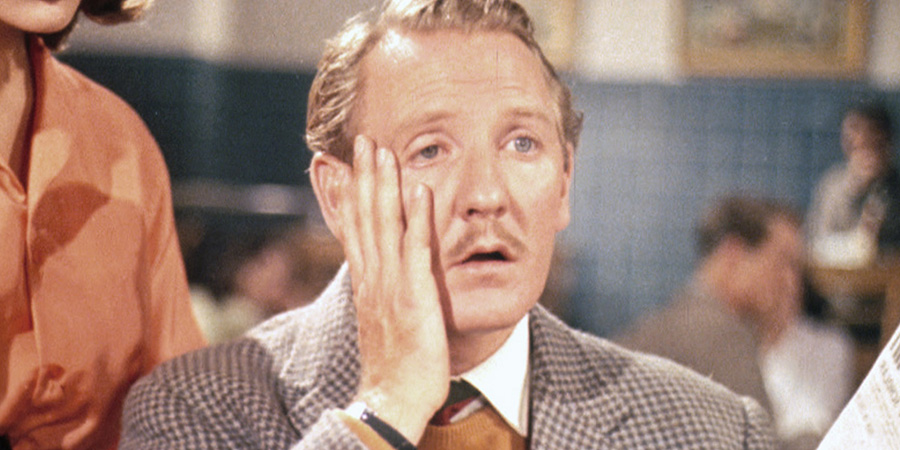
Penny had died the previous year in a house fire while Leslie was touring a play abroad. He was called by his children with the news but decided, as both star and director, he could not return to England without causing significant financial losses to both himself and the rest of the cast. He did not attend Penny's funeral as a result, a decision he admitted in his 2006 autobiography, Hello, that his family never forgave him for.
Scoular, meanwhile, lived with bipolar disorder, mental health issues, alcoholism and a long-standing guilt that her mother had brought up her son, Daniel, in his early years so she could continue to work as an actress. She died in 2011 after drinking a corrosive cleaning fluid. An inquest declared that this was not suicide but that she had 'killed herself while the balance of her mind was disturbed'. Leslie always felt their life together was happy apart from her alcoholism, although he had thwarted a previous suicide attempt in 1992.
Phillips married his third and final wife, Zara Carr, in December 2013. Having initially met in the mid-90s, she had long been a friend and helped look after him after Angela's death. Eventually their friendship turned to love. By then aged 89, Leslie assumed that Zara was in her fifties but, being from the old school, considered it 'bad form' to ask a lady her age, so he never knew. She was 32 years his junior.
Away from comedy, as he moved in the 1980s and his sixties Leslie decided he wanted to stretch his thespian muscles, eschewing the stereotypical, suave ladies' man parts he'd usually played. It was time for more serious and challenging work. A small part in the film Out Of Africa (1985) led director Steven Spielberg to cast him in the 1987 film Empire Of The Sun, a part for which he lost 2 stone to play. Quality theatre work came his way too, including Chekhov's The Cherry Orchard, where he appeared alongisde Joan Plowright and Frank Finlay, receiving rave notices and plaudits from fellow actors such as Sir Laurence Olivier, Sir Alec Guinness and Sir Anthony Hopkins. On TV he had a starring role in the ITV drama series The Chancer (1990 and 1991) alongside Clive Owen, and back on the big screen he was in Scandal (1989) as Lord Astor, and famously voiced The Sorting Hat in three of the Harry Potter films.
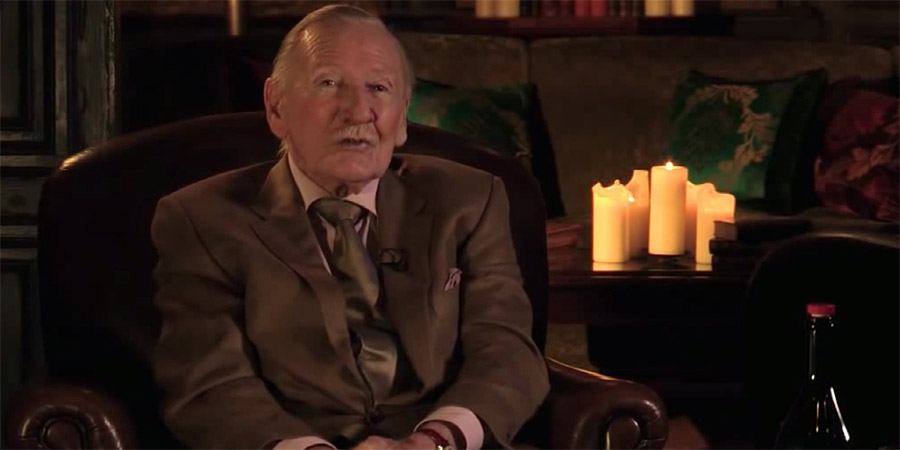
In the 2006 film Venus, meanwhile, he starred opposite Peter O'Toole and a then-unknown Jodie Whittaker. He earned a 2007 BAFTA nomination for Best Supporting Actor for the part, and was awarded the OBE in 1998 and the CBE in 2008.
Leslie continued to act - with his last role in 2012 - but in 2014, aged 90, he was forced to retire after suffering two strokes within six months. His health was never as robust after that, and on 7th November 2022, Leslie Phillips CBE died peacefully in his sleep. He was 98.
He will forever be remembered as charming and dashingly good-looking, with an eye for the ladies and a voice as seductive as warm chocolate sauce. No one else could utter the words 'hello', 'I say' or 'ding dong' with such resonance and flirtatious vigour. He was a staple of British comedy in film, TV and radio for more than 50 years and, in the end, proved himself as a fine serious actor as well as someone who provided years of classic comedy and laughs.
Help us publish more great content by becoming a BCG Supporter. You'll be backing our mission to champion, celebrate and promote British comedy in all its forms: past, present and future.
We understand times are tough, but if you believe in the power of laughter we'd be honoured to have you join us. Advertising doesn't cover our costs, so every single donation matters and is put to good use. Thank you.
Love comedy? Find out moreLeslie Phillips - Hello: The Autobiography

Leslie Phillips's story begins with a poverty-stricken childhood in North London, made all the worse when his father died when Leslie was just ten years old. Soon after, he began his acting career, and since then he has worked with Steven Spielberg, Laurence Olivier, Anthony Hopkins and Angelina Jolie, among many others.
Best known for his comic roles in the Carry On and Doctor series, he took the decision in later life to take on more serious roles in films such as Empire Of The Sun, Out Of Africa and Scandal, as well as performing in plays such as The Cherry Orchard.
In this, his long-awaited autobiography, he recalls some of the great characters he has worked with, and the book is packed with hilarious anecdotes. He also highlights how different he is in real life from his onscreen persona as a bounder. It is a fascinating story, brilliantly told.
First released: Tuesday 3rd October 2006
- Published: Thursday 15th November 2012
- Publisher: Orion
- Download: 3.55mb
BCG may earn commission on sales generated through the links above.
- Publisher: Orion
- Pages: 464
- Catalogue: 9780752868899
![]() Buy and sell old and new items
Buy and sell old and new items
Search for this product on eBay
BCG may earn commission on sales generated through the links above.
- Published: Wednesday 22nd August 2007
- Publisher: Orion
- Pages: 432
- Catalogue: 9780752881782
![]() Buy and sell old and new items
Buy and sell old and new items
Search for this product on eBay
BCG may earn commission on sales generated through the links above.
- Released: Wednesday 18th October 2006
- Distributor: Orion
- Discs: 4
- Catalogue: 9781407222820
![]() Buy and sell old and new items
Buy and sell old and new items
Search for this product on eBay
BCG may earn commission on sales generated through the links above.
Casanova '73

One of Britain's greatest comedy icons, Leslie Phillips, stars in the lost TV comedy classic Casanova '73 as footloose - if not fancy free - Henry Newhouse, alongside Jan Holden as his long-suffering wife.
Taking advantage of the sexual revolution, Henry happily philanders, or attempts to philander, at every opportunity, sometimes successfully - never without a price. Whether it's an air hostess or beauty pageant contestant, a stripper turned fire-eater or a niece in need of advice, what Henry sees, Henry can't resist.
Written by the acclaimed team of Galton and Simpson (Hancock's Half Hour, Steptoe & Son, Citizen James), the series was inspired by Dennis Potter's more-serious, if more naked, Casanova. Little did they realise the scandal that would result when TV watchdog Mary Whitehouse rallied her troops. Casanova '73 would not see '74.
Now, for the first time on DVD, audiences can once again enjoy Leslie Phillips at the top of his form, bringing his theatrically-honed skills to Casanova '73, filmed before a live audience, with all the hilarity of 70s British farce at its height.
Includes all 7 episodes from the series, an exclusive new interview with Leslie Phillips, a picture gallery, cast filmographies, and Galton & Simpson themselves on Casanova '73.
First released: Sunday 7th October 2012
- Distributor: Acorn Media
- Region: 2
- Discs: 2
- Catalogue: AV3007
![]() Buy and sell old and new items
Buy and sell old and new items
Search for this product on eBay
BCG may earn commission on sales generated through the links above.
Leslie Phillips Collection - Comic Icons

Collection of features starring the debonair British gentleman with a penchant for seaside-comedic gags and an eye for the ladies, Leslie Phillips.
In Please Turn Over (1959) a town is driven to insurrection when a local girl publishes a sexy novel with characters quite plainly lifted from among local personages, including her mum and dad!
Watch Your Stern (1960) is a navy lark featuring many of the Carry On crew, in which a ship's steward convinces his admiral he is the brain behind a homing torpedo, but he finds himself in deep water.
In No Kidding (1960) a young couple inherits a large estate and decides to turn it into a kids' camp - to predictably riotous results.
In Crooks Anonymous (1962) a former lag trying to go straight joins a rehabilitation scheme using much the same methods as AA. Through the process, he takes work as a department store Santa, where the endless parade of goods and money, not to mention the pretty young shop hands, have him like a moth to a flame in no time flat.
First released: Monday 5th February 2007
- Distributor: Optimum Home Entertainment
- Region: 2
- Discs: 4
- Catalogue: OPTD0781
![]() Buy and sell old and new items
Buy and sell old and new items
Search for this product on eBay
BCG may earn commission on sales generated through the links above.
Leslie Phillips

Three classic British comedy films starring Leslie Phillips OBE:
In The Doghouse
Don't Just Lie There, Say Something!
The Man Who Liked Funerals
First released: Monday 8th August 2016
- Distributor: Strawberry Media
- Region: 2
- Discs: 3
![]() Buy and sell old and new items
Buy and sell old and new items
Search for this product on eBay
BCG may earn commission on sales generated through the links above.

